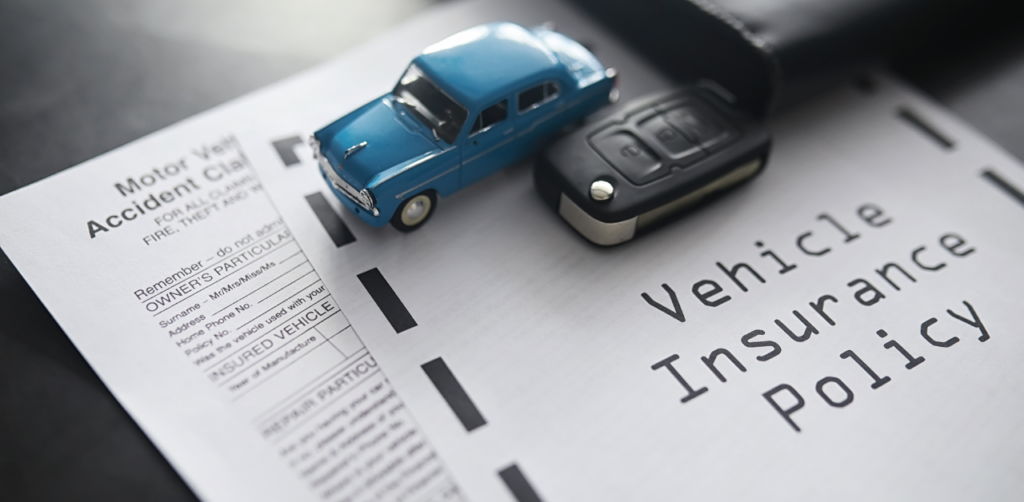How long does a car accident stay on your record? It’s a question many drivers in Las Vegas ask after being involved in a fender bender or more serious crash. An accident can damage your car and leave a mark on your driving record, affecting your car insurance rates and even your driving privileges. This is where understanding the implications of a car accident becomes essential.
The aftermath of a car accident often goes beyond the immediate damage and repair costs. Your driving record may reflect the incident for years, causing your car insurance premiums to rise. Insurance companies calculate these premiums based on your driving history, so even a single accident can put you in the “high-risk” category, making saving money on your car insurance coverage harder.
Fortunately, there are ways to minimize the long-term impact of an accident. Options like accident forgiveness or a defensive driving course can help reduce how long the accident stays on your record.
At Temple Injury Law, a car accident lawyer in Las Vegas, we help drivers understand the long-term implications of accidents. We offer guidance on handling any car insurance claim and protecting your driving record. Addressing these issues quickly can help avoid prolonged penalties and inflated auto insurance rates.
Duration of Car Accidents on Your Record
In Nevada, car accidents generally remain on your driving record for three years. However, this duration can vary depending on the severity of the accident and any related traffic violations.
Here’s a breakdown of critical points regarding accidents on your Nevada driving record:
- Standard Accidents: Typically, accidents where you’re found at fault stay on your driving record for 3 years.
- Serious Violations: If the accident involves serious violations such as DUI or reckless driving, these offenses can remain on your record for up to 10 years or longer.
- Insurance Impact: While accidents may stay on your driving record for 3 years, they could affect your insurance rates for longer, depending on your insurer’s policies.
You can contact the Nevada DMV for a more detailed look or request a copy of your driving record.
Impact of Car Accidents on Auto Insurance Rates
A car accident can dramatically impact your auto insurance rates, and premiums are rising. According to U.S. News and World Report, drivers with one accident typically pay around $2,940 annually, significantly higher than those with a clean record.
Insurance rates often rise after an accident due to perceived increased risk. Even not-at-fault accidents might affect your rates, depending on your provider’s policies.
Shopping around for quotes from various car insurance companies after an accident can help you find the most competitive rates.
At-Fault Accidents
Forbes reports that at-fault accidents are particularly detrimental to insurance rates, with drivers typically paying 45% more after a single at-fault incident. Insurers view these drivers as higher risk, leading to increased rates.
The severity of the accident can further cause the rate to increase. Factors like injuries, fatalities, substance involvement, and hit-and-run scenarios can significantly raise premiums.
Not-At-Fault Accidents
Generally, not-at-fault accidents do not affect insurance rates. However, the Consumer Federation of America states that some insurance companies’ rates can increase by up to 10% for not-at-fault accidents.
Check your state laws after a not-at-fault accident to see if they prevent rate increases. Understanding your insurer’s policies can help you prepare for potential premium changes.
How Long Do Car Accidents Affect Insurance Premiums?

Car accidents typically impact insurance premiums for about five years, during which insurers review your driving history and adjust rates. After this period, an accident will no longer affect your premiums, assuming no further incidents.
The severity also plays a role in how long an accident affects premiums. Insurers usually review a driver’s record from the past three to five years when determining rates. Maintaining a clean record during this period is crucial for lowering rates.
Accident Forgiveness Programs
Accident forgiveness programs help drivers avoid surcharges after their first at-fault accident. Not all insurers offer them; some provide them as an optional add-on, while others include them automatically. These programs help drivers avoid rate increases after their initial at-fault accident. However, some states restrict the availability of accident forgiveness, making it a non-universal feature.
Eligibility for Accident Forgiveness
Eligibility for accident forgiveness often requires maintaining a clean driving record for a specified period and being a policyholder with the insurer for a certain duration.
Individuals who are eligible for discounts after an accident include:
- Student
- Military
- Senior
- Bundling discounts
Switching Insurers and Forgiveness
Switching auto insurance companies after an accident is expected, as drivers seek better rates or forgiveness options. However, not all insurers offer the same forgiveness programs, which can affect premiums.
The outcome of a forgiven accident may vary based on the new insurer’s policies. Verify how they handle previous forgiveness to avoid unexpected rate increases.
Steps to Lower Car Insurance Rates After an Accident
Are you looking to reduce your car insurance rates after an accident? Follow these key steps to help lower your premiums and get back on track with more affordable coverage.
1. Seeking Discounts
Seeking discounts and incentives from your insurance providers helps manage auto insurance costs. Accident forgiveness programs prevent premium increases after an accident, often requiring a clean driving record and a certain duration as a policyholder.
Defensive driving courses can lead to significant discounts on insurance premiums and encourage safer driving habits.
2. Defensive Driving Courses

Taking defensive driving courses can lead to discounts on insurance premiums by demonstrating improved driving skills to insurers. In some states, defensive driving courses can also help remove points from your driving record, lowering insurance rates.
3. Policy Adjustments
Adjusting coverage levels in an insurance policy can significantly lower premiums after an accident as long as state minimums are met. Ensure any policy adjustments comply with state-mandated minimum coverage requirements. These adjustments help reduce premiums and reassess coverage needs.
Removing an Accident From Your Driving Record
Accidents generally cannot be manually removed from your driving record and must remain for a specified duration based on state laws. However, enrolling in accident forgiveness programs, completing a defensive driving course, or disputing errors can reduce their effect.
Driving records differ from criminal records as they are not eligible for sealing or expungement. Therefore, maintaining a clean record post-accident is crucial to minimize long-term impacts and ensure that any violations stay on your record.
Manage the Impact of a Car Accident on Your Driving Record and Insurance
A car accident can stay on your driving record for varying periods, depending on your state’s laws and the severity of the accident.
Typically, accidents remain on your record for three to five years, though more serious offenses, like DUIs, may last longer. This can impact your car insurance premiums, as insurance companies use your driving history to assess risk. However, taking steps such as enrolling in a defensive driving course or opting for accident forgiveness programs offered by some insurers can help mitigate these effects. If you’re dealing with a car accident affecting your driving record or insurance rates, reaching out to a knowledgeable attorney is an intelligent step. At Temple Injury Law, our car accident lawyers can help you understand your legal options and guide you through the process. Schedule a consultation with us today to discuss your case and learn how to protect your driving record moving forward.

Jeff Temple focuses his practice in the area of personal injury. As a skilled personal injury attorney, he handles a broad range of cases including motor vehicle accidents, premises liability, and wrongful death. He is a graduate of the Radford University, he later attended the University of Miami School of Law and studied abroad at University College London. Upon graduating, Jeff relocated to Las Vegas and founded Temple Injury Law in 2022.

